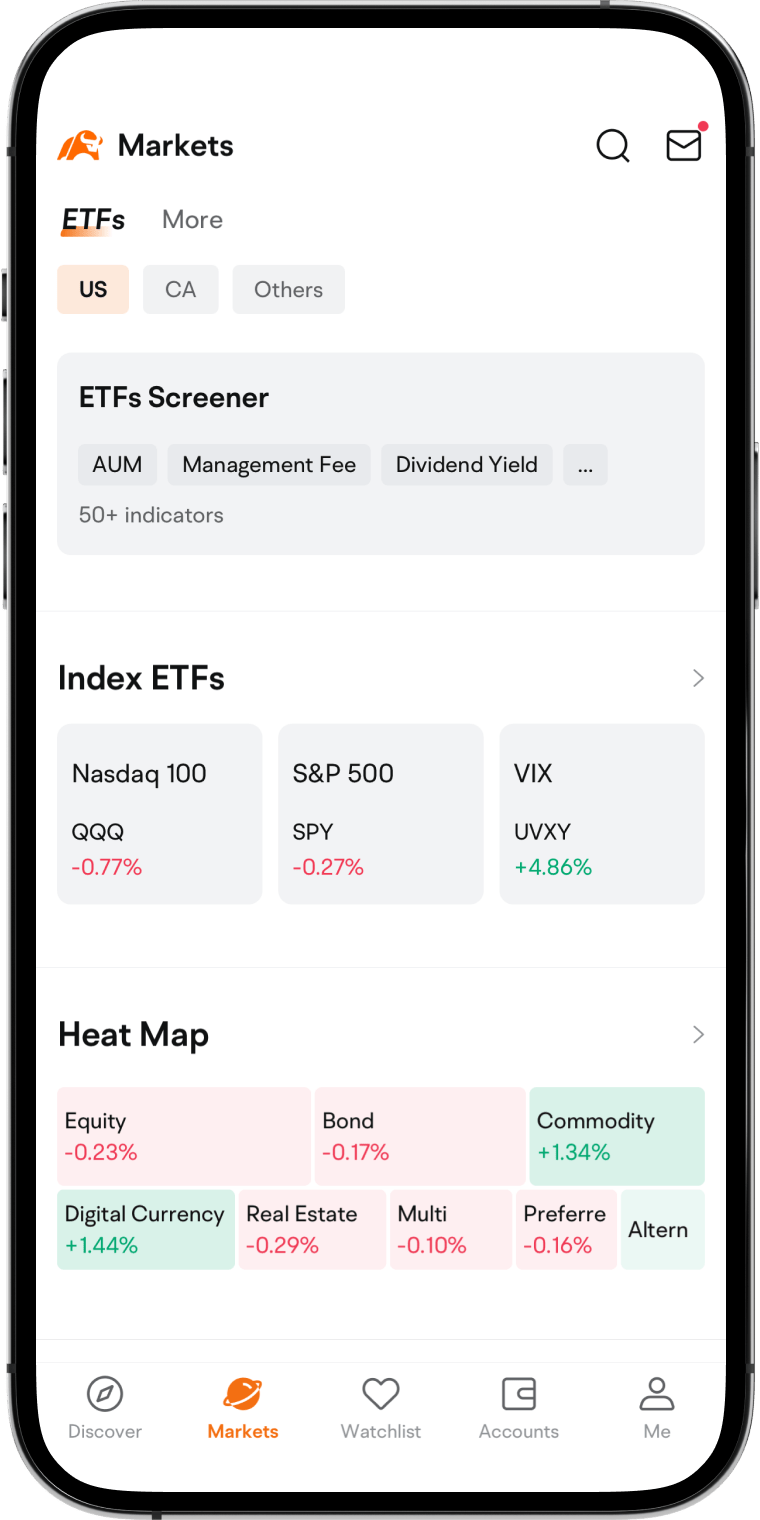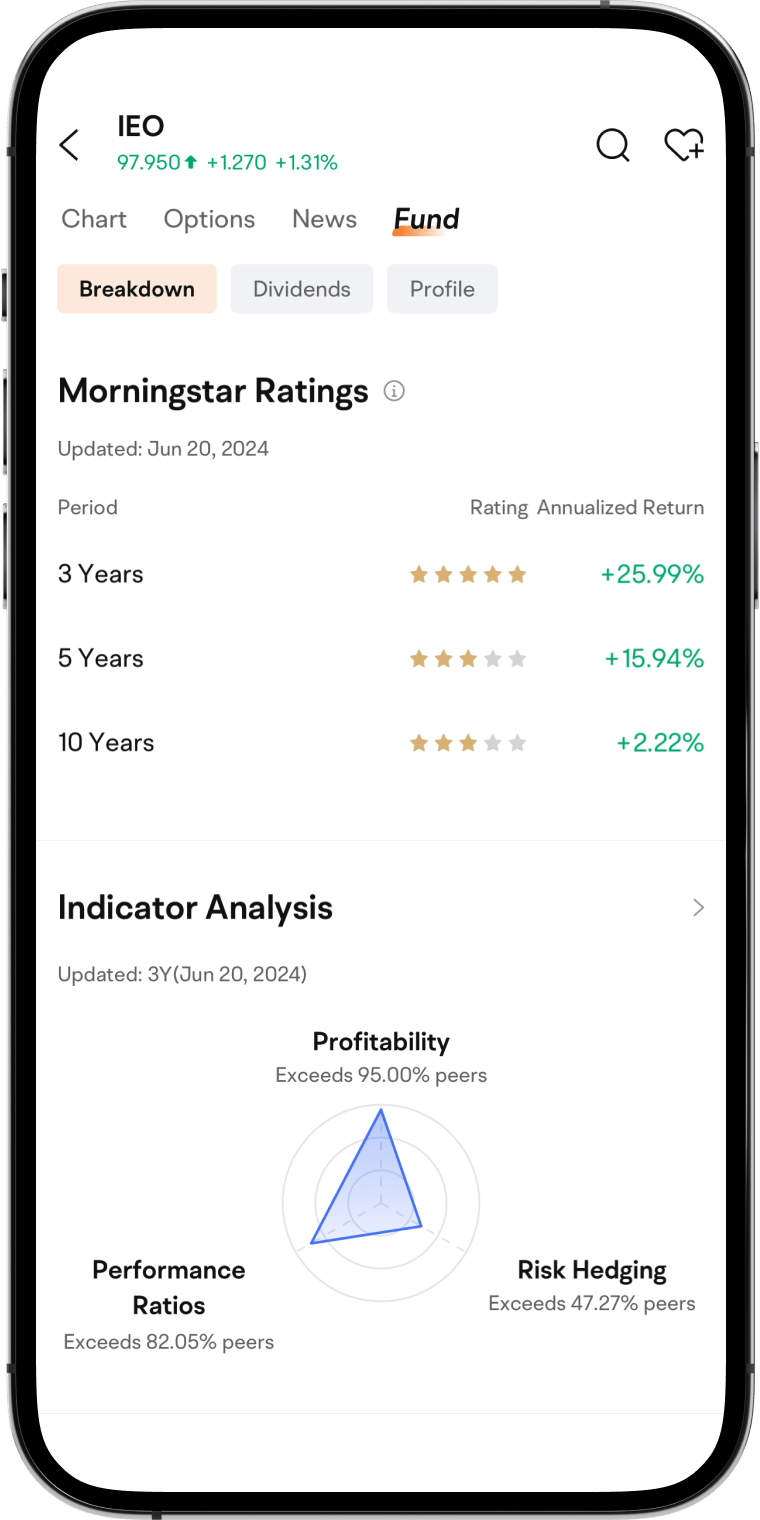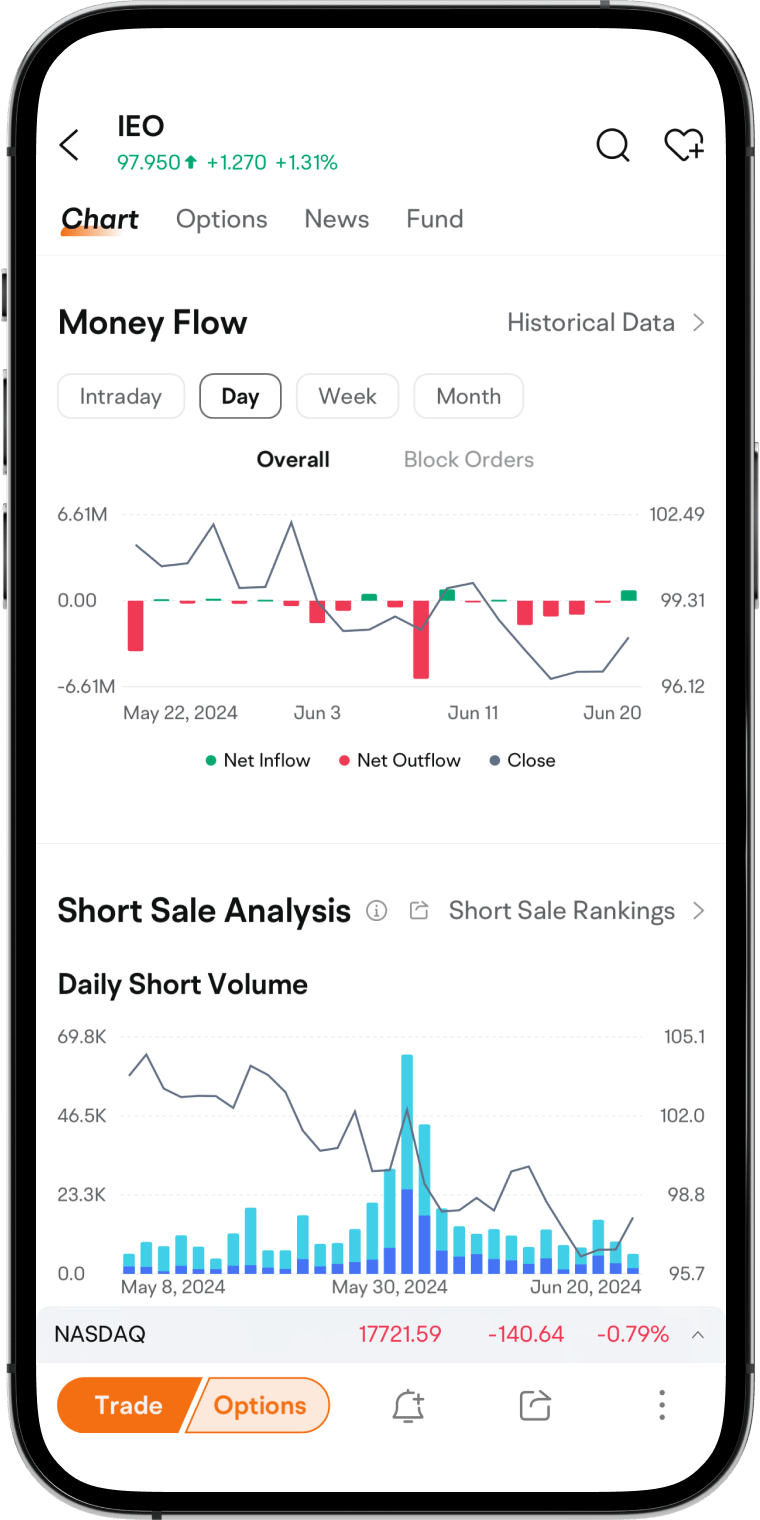Build an ETF portfolio
with our easy-to-use tools
Moomoo offers a wide range of US-listed and Canadian-listed ETFs. Powered by our new analytical ETF tools, you can select and analyze your portfolio.
Moomoo offers a wide range of US-listed and Canadian-listed ETFs. Powered by our new analytical ETF tools, you can select and analyze your portfolio.

ETFs can help you diversify your portfolio and enable you to navigate the markets with ease. They hold a group of stocks and bonds that are often built to track popular indexes.



ETFs typically have lower expense ratios than mutual funds, making them a cost-effective choice.

Tax-efficient
Moomoo has over 5,000 US-listed and Canadian-listed ETFs for you to choose
Track major stock market indexes such as the S&P/TSX Composite Index for Canadian equities or the S&P 500 for U.S. equities.
Consolidate diverse assets into a single package, incorporating factor and value investing strategies.
Track stocks in specific sectors, such as technology, finance, healthcare, energy.
Find the right high-dividend, top-performing and top-rated ETFs with our new ETF screener.
Compare ETFs more effectively with Morningstar ETF ratings' comprehensive insights.
Make informed investment decisions by tracking capital inflows and outflows in individual ETFs.
Share ETF trading insights with millions of investors in the trading community.




ETFs are a type of exchange-traded product that offers investors a way to pool their money in a fund that invests in stocks, bonds, or other assets. In return, investors receive interest, such as dividends or capital gains.
Many Exchange-Traded Funds (ETFs) are designed to track a particular market index passively. These ETFs aim to achieve the same return as the index they track by investing in all or a representative sample of the stocks included in the index.
Many different types of ETFs invest in various assets, including but not limited to stocks, commodities, and bonds. ETFs may also invest across different market sectors and countries.
ETFs can be traded long or short, similar to stocks, but they differ in that they represent multiple holdings under one symbol, rather than just shares in a single company.
ETFs are traded on stock exchanges throughout the trading day, like individual stocks, while mutual funds are bought and sold at the end-of-day net asset value (NAV) price. Additionally, ETFs tend to have lower expense ratios than mutual funds, making them a cost-effective option for investors.